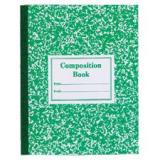|
Ask Me “Know” Questions
“Ask me no questions, and I’ll tell you no fibs.” According to John Bartlett’s Familiar Quotations, Oliver Goldsmith, a playwright, wrote these words in “She Stoops to Conquer”. (You were expecting “I’ll tell you no lies”, weren’t you?) I play on the words of the quote with this topic – ask me know questions. (Ask questions that give you the information you need to know.)
Research questioning techniques and find advice that tells you to use open-ended questions, rather than closed questions, to get detailed information. Closed questions are those that elicit one-word and short answers like “Yes”, “No”, “Over there”, and “17”. These answers provide little information. Open-ended questions - also termed “reporter’s questions” in that media reporters prefer using them - garner as much information about a topic as possible. Open-ended are the who, what, when, where, why, and how questions. The answers to these questions typically involve descriptions and explanations in more detail than closed responses.
While the above are considered open-ended questions, some are more open than others. “Who?” may elicit a simple name – a short answer. “When?” may yield just a time of day or calendar date. “Where?” may result in an address, a location name, or “over there” for an answer. These are short answers that reveal few details. They are fine for simple fact-finding if that is all you need. If you need in-depth answers, question more efficiently by asking “What?”, “Why?”, or “How?” The responses to these questions – other than from your teenagers – yield more information than, “Whatever!”
When you have detailed answers,
You’re surely in the know.
So use your “whats” and “whys” and “hows”.
These are the way to go.
|


